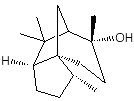hiba cedarwood oil specifications
We are now adding to our line-up of product the hinoki wood aroma oil.
This blog entry is to provide the same level of information for the stonger "hiba oil"
There is a saying: "in a house made of hiba, mosquitos do not come for 3 years".
Here are some detailed information about the tree also known as Arborvitae (tree of life):
Botanical Name: Thujopsis dolabrata
Synonyms: Thuja dolobrata, Thuja, Hiba, Aomori Hiba, Asnaro, Arborvitae.
Family: Cupressaceae (Cypress Family)
Plant Part: wood (no bark or leaves).
Actually we extract the oil from wood chips and construction material scraps of Aomori Hiba tree. This means that the wood is all from the core of the plant (it does not contain sapwood). Another statement we can make is that this is a 100% ecological material. No single tree has been cut to produce the oil.
Extraction Method: Steam Distillation.
Neutral oils: Thujopsene, Cedrol, U-idrol
Acid oils: Cuparene, Terpinen, β-Doraburin, Carvacrol, i- rosin acid
 |  |  |  |
| Thujopsene (β-thujaplicin or hinokitiol) | Cedrol | Cuparene | Terpinen |
Origin: Japan (Aomori prefecture)
Oil Color: yellow liquid.
Consistency: Thin
Strength of Aroma: Strong
Scent: Hiba Wood Essential Oil has a strong woody scent reminiscent of Cedarwood. It is different from Port Orford cedar and american conifers as its content of pinene is low.
Blends well with: Bergamont, Boronia, Clary Sage, Cypress, Calamus, Cassie, Frankincense, Jasmine, Juniper, Labdanum, Mimosa, Neroli, Rosewood, Rosemary, Vetiver, etc.
Emotional description: spicy, musky, woody, oriental and mysterious.
People who liked Hiba wood aroma also liked Hinoki, Shalimar, Obsession, Opium or Ciara.
Cautions: Generally hypoallergenic, non-irritating and non-sensitizing.
* Toxic when ingested.
* When using directly on skin or scalp, try first on a small portion of your skin to see if any reaction develops. If you experience skin irritation, burning, itching or any other symptom, you might be experiencing an allergic reaction. Discontinue use until a doctor can perform a screen.
* Pets: Avoid using hiba-oil (or any cedar extract product) as a flea treatment for cats, which are particularly susceptible to plant-oil poisoning. About dogs: verify the usability and dosage with your veterinary.
* Avoid use during pregnancy.
Personality of the hiba cypress

It is called Hiba cypress or "arborvitae", and refuses to co-exist with other trees.
Hiba is a tree native of Japan, additionally we can say that about 80% of the hiba trees are located in Japan, in the Aomori prefecture. Forests have an average age of 200-250 years, it is a tree that grows over the years slowly tempered by the harsh wind and snow of the northern japanese region. Together with hinoki and sugi pine, hiba is one of the three large trees of Japan and as a building material it is considered "first class" for its resistance to rot.

(above is a photo of 1000 year old hiba wood from the Sarugamori forest on the northern tip of aomori prefecture.)
Hiba is used in construction and together with hinoki it has the honor of being preferred for the construction of shinto shrines.
Hiba hard to rot quality is surprising compared to other trees: we can often find in the mountains leftovers of wood logged 100 years ago and the heatwood is in perfect conditions, it even maintains its fresh fragrance! Hiba is used in history many buildings Including Hirosaki Castle, this is also proves its resistance to rot in the humid japanese weather.

The reason of its resilience is its high content of hinokitiol (also known as Thujopsene).
This natural chemical compound in the family of terpenes and was first isolated in Taiwan hinoki: this is the reason for the name.
Actually, it is contained in very small amount in Taiwan hinoki, and even less in Japanese hinoki.
The plants that contain high value of hinokitiol (about 2% of the weight of the heartwood) are the Japanese Hiba cedar (Thujopsis dolabrata) and the Canary Islands Juniper (Juniperus cedrus)



